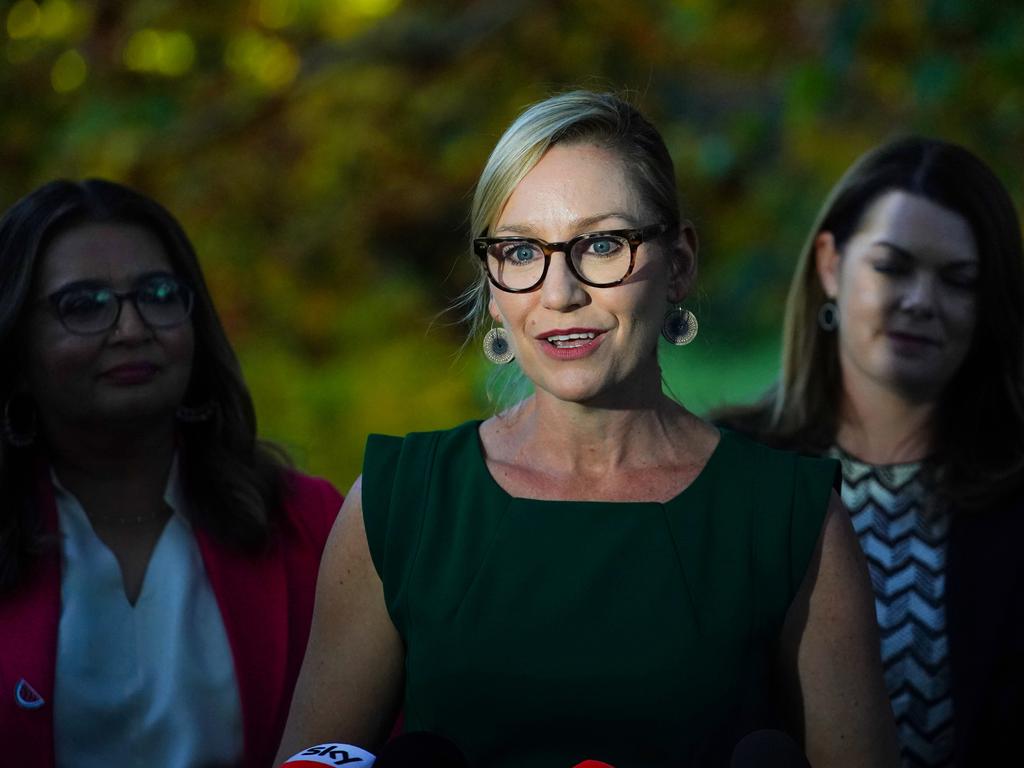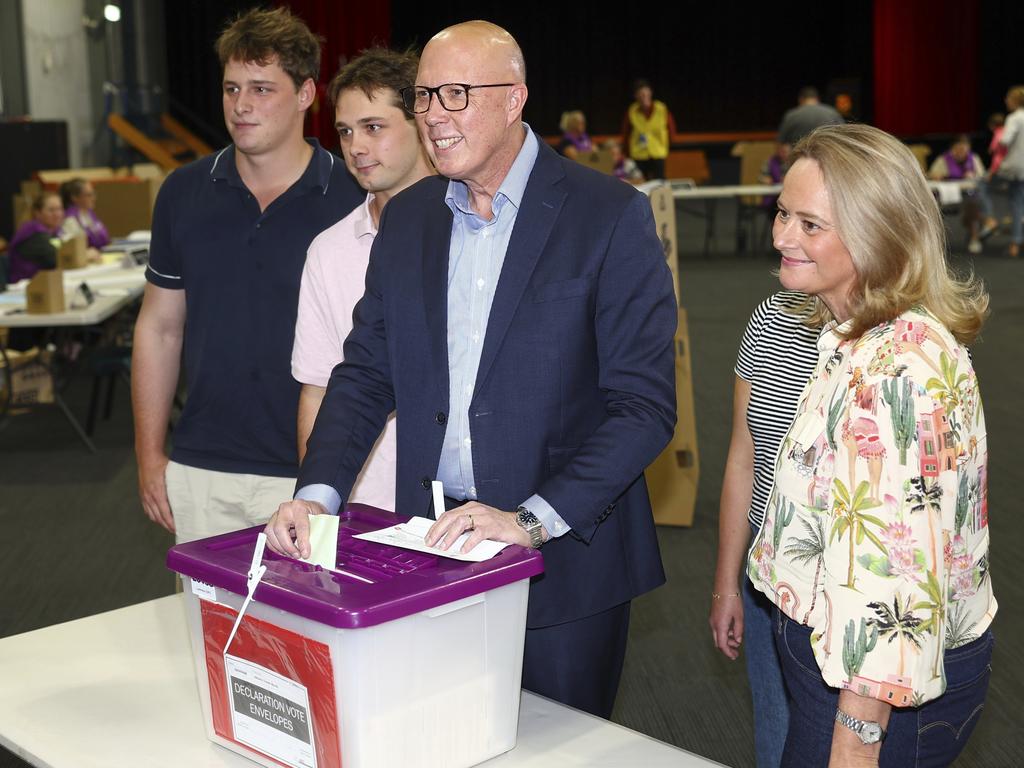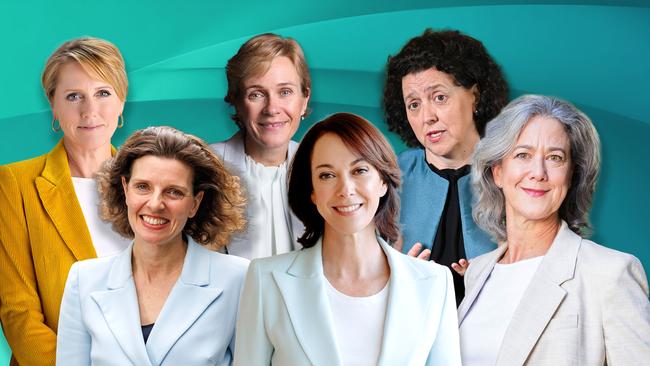
This column is fond of the saying that it’s unwise to make political predictions, especially about the future.
Writing in The Saturday Paper on May 3, the morning of the election, well-regarded historian and former Labor Party minister Barry Jones commented: “The likeliest result on May 3 will be a small majority for Labor but it will almost certainly be the last victory for a hegemonic party.”
Jones’s piece was headed “The last majority government”.
Like the overwhelming majority of commentators, he believed Anthony Albanese would prevail over the Coalition. And, like most commentators, he maintained that any Labor majority would be small.
As we now all know, this turned out to be false.
Before May 3, many political analysts predicted the Climate 200 teal independents (Kate Chaney, Zoe Daniel, Monique Ryan, Sophie Scamps, Allegra Spender and Zali Steggall) would attain a balance of power outcome in the House of Representatives. And, consequently, put themselves in a situation where they could wield real influence over the Albanese government.
For example, writing in Nine newspapers on March 6, columnist Niki Savva opined: “Australians appear set to hand decisive power to a group of raw (mostly) female MPs.”
Savva added: “Not so long ago, if confronted by such a volatile, potentially dangerous environment, voters would have sought refuge with the major parties; not today.”
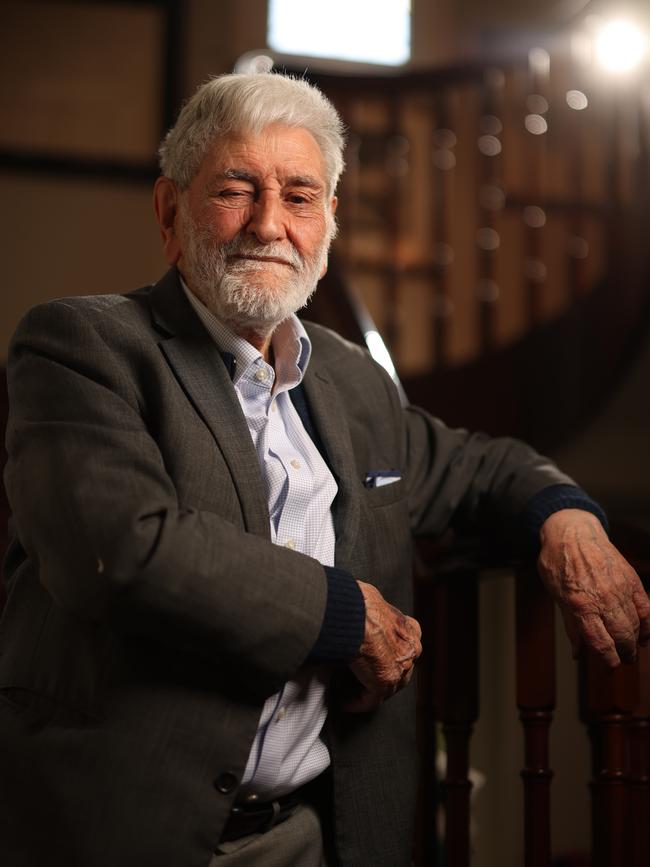
In fact, the teals also got a relatively low primary vote in seats they contested. For example, 33 per cent in Curtin (Chaney), 34 per cent in Kooyong (Ryan), 36 per cent in Mackellar (Scamps), 40 per cent in Warringah (Steggall) and 37 per cent in Wentworth (Spender).
As to the national vote, ABC chief election analyst Antony Green recently provided these estimates: Labor 34.6 per cent, Coalition 31.9 per cent, others (including teals) 13.1 per cent, Greens 12.1 per cent and One Nation 6.4 per cent. This suggests the Climate 200 teals are more dependent on Labor than Labor is dependent on them, since all the teals are in the House of Representatives as a result of Labor and Greens preferences.
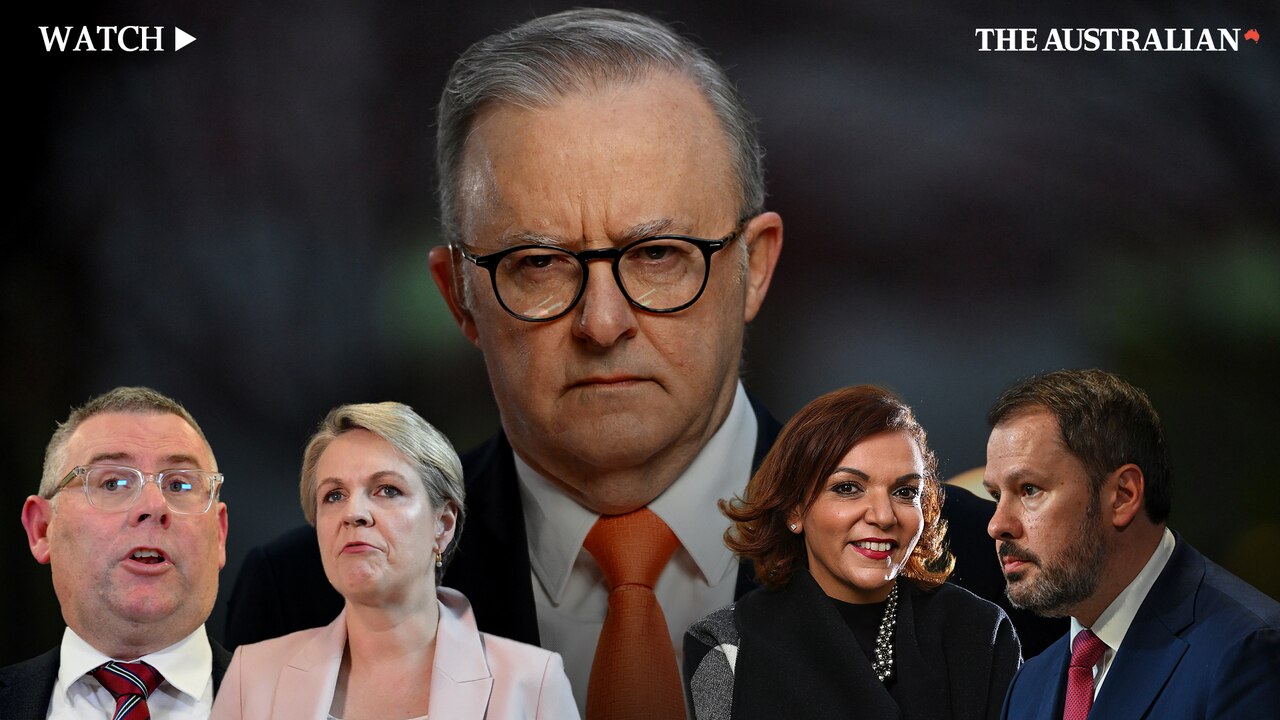
In the wake of the 2022 election, ABC television’s Four Corners did a program titled Independents’ Day. The program aired a conversation between Chaney and Ryan.
The member for Curtin had this to say: “I certainly am copping it from people in my electorate who said: ‘And now you’re powerless. You know? You didn’t hold the balance of power so therefore you can’t do anything.’
“That attitude of helplessness is what perpetuates the problems that we have. All you can do is nudge. You can only nudge things in the right direction. And it takes a lot of nudges to actually make any change.”
Before the May election Chaney and her teal comrades could expect to be listened to on the basis that they might have the balance of power in the future. But now this could not occur before May 2028 and possibly later.
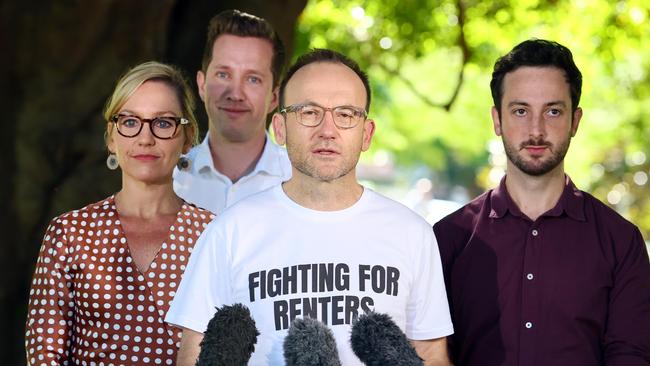
It is not just the teals who have lost political clout since the election. The same applies to senators such as David Pocock and Jacqui Lambie.
It is commonly said the Greens, who lost three seats in the House of Representatives – including their leader, Adam Bandt (Melbourne), and the high-profile Max Chandler-Mather (Brisbane) – now alone hold the balance of power in the Senate. This is not entirely correct.
It’s true that Labor needs the vote of the Greens to get legislation through the Senate. But only if the Coalition senators oppose any such legislation. If Coalition senators choose to support the Albanese government’s program, the Greens will be irrelevant.
That is the political reality, despite continuing soft interviews on the ABC after the election.
Ryan appeared on Radio National Breakfast on May 13 and Steggall on May 15, despite the fact, after May 3, the teals are not key players. Nor are the other small parties and independents in the Senate and House of Representatives.

Interviewed on the Sky News Weekend Live program on May 4, Steggall conceded that the Albanese government had a clear victory. But she also maintained the result “also endorsed community independents around positive politics, around policy”. She said in a comparison of “the independents versus the Greens – the independents have done much better”.
But have they? After all, the Greens – along with the Coalition, have real influence in the Senate while the teals and independents have scant influence in either chamber of the federal parliament.
While the teals claim success in influencing the Albanese government’s climate policy, they remain unhappy with the outcome so far – as Steggall stated in her Radio National interview.
And then there is Chaney in Perth. On one day she stated her support for banning live sheep exports – an industry essentially based in Western Australia. The next day she changed her mind.
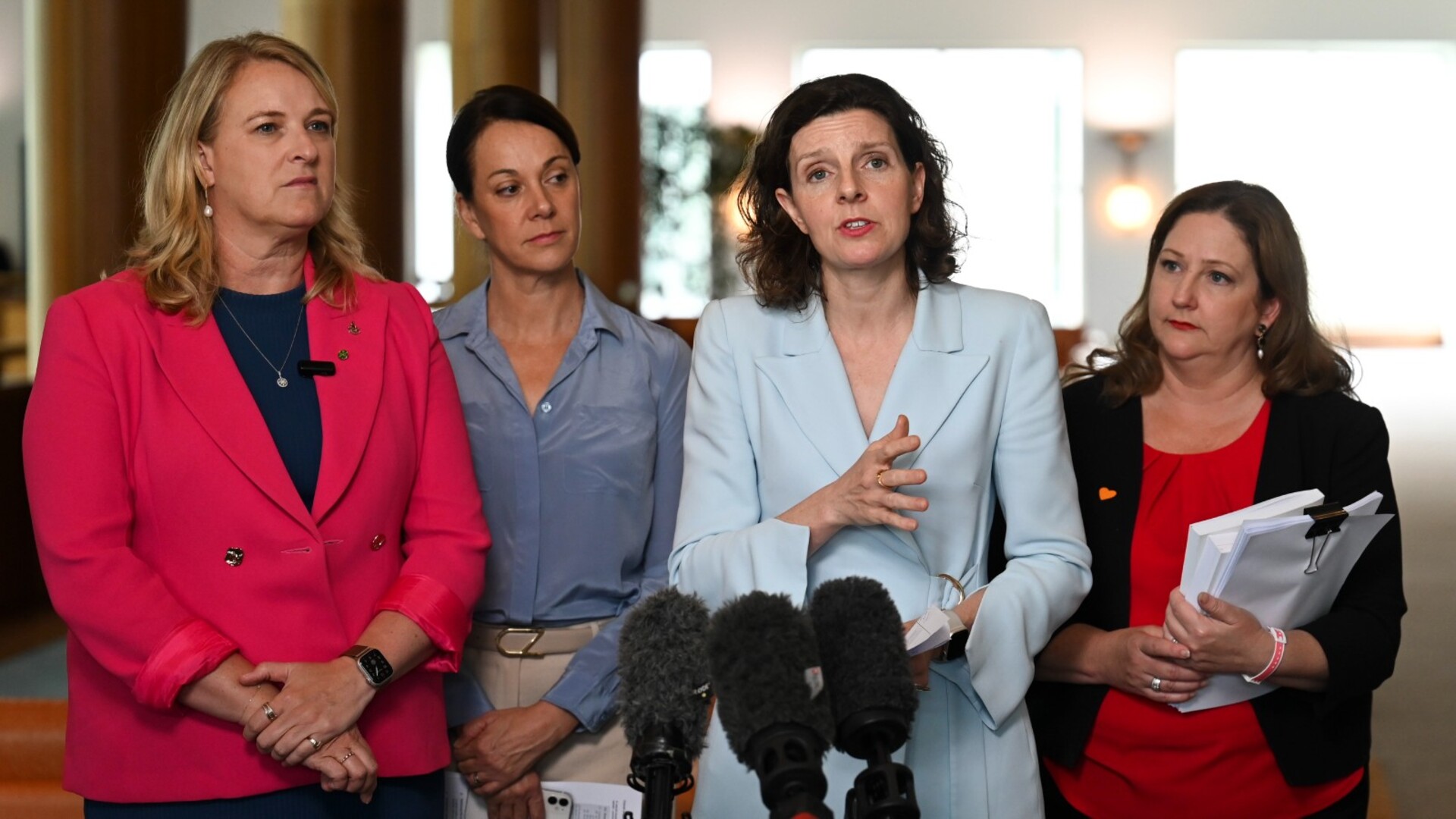
Also, Chaney initially opposed Woodside Energy’s North West Shelf project in Western Australia, describing it as “unacceptable”. The Curtin MP’s electorate contains many employees who work in the mining sector. Soon after, Chaney changed her mind, stating that she was “not opposed” to the venture provided it met “certain conditions” – whatever that means. In any event, her position does not matter much these days.
All this suggests that when the teals face political reality they are just as capable of changing their minds as members of mainstream political parties, concerning whom the teals are wont to express moral superiority. Spender has attained considerable coverage for her views on taxation reform. However, it is unlikely they will be embraced by government.
The lesson about Australia that emerges from the May election is that those predicting the forthcoming death of the two-party system along with the triumph of the teals and others who claim to be community independents is by no means certain.
In the House of Representatives the two biggest political groupings remain Labor and the Coalition. It’s much the same in the Senate, except the Greens also have real influence.
Jones writes fine history but, like many a prophet, his predictions have yet to be fulfilled.



